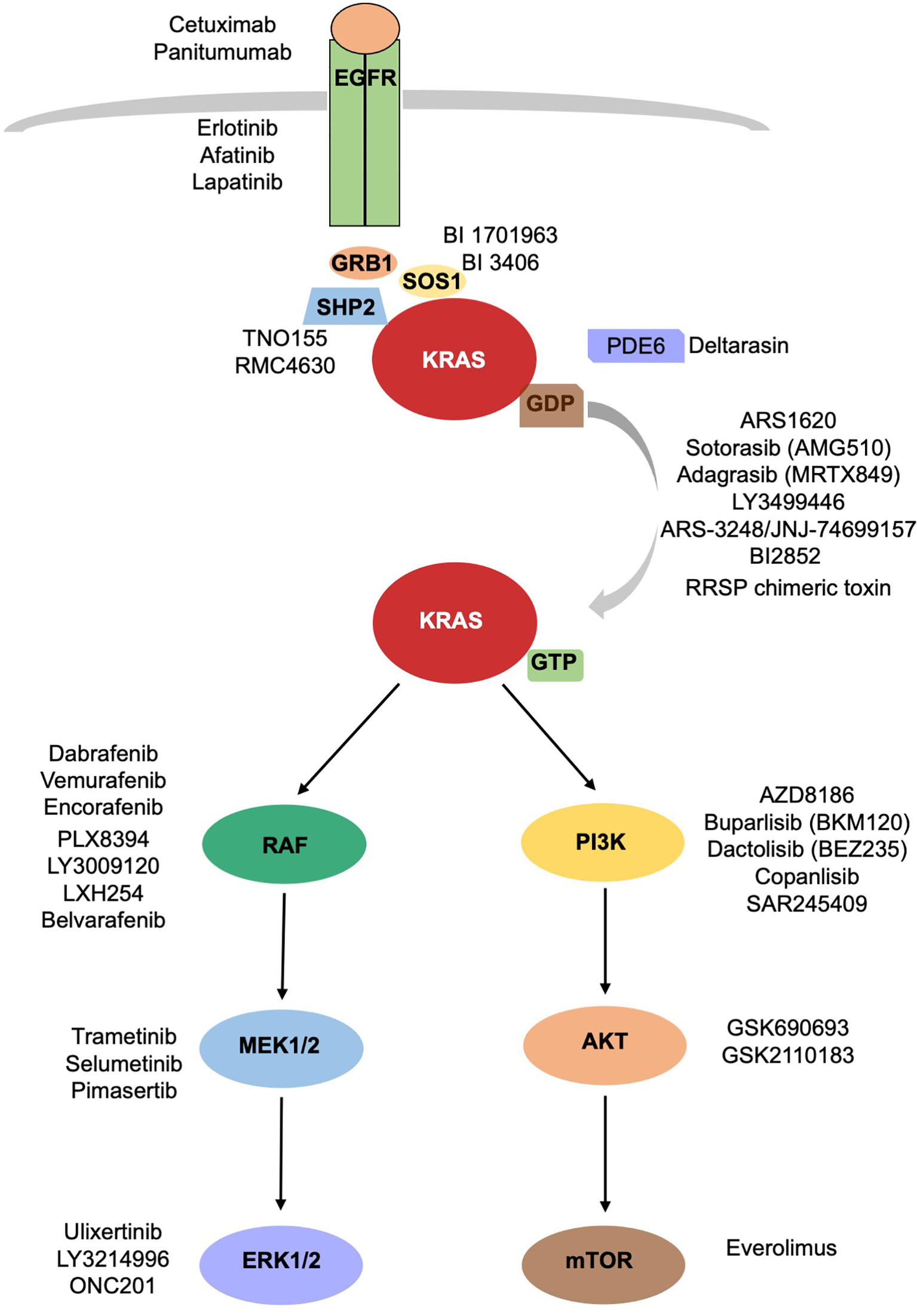In the world of cancer research, every breakthrough holds the promise of saving countless lives. One such breakthrough is the discovery of the KRAS G12D mutation and its potential implications in cancer treatment.
As an investor or someone interested in learning about investing, understanding this groundbreaking research by Amgen and its impact on the field of precision medicine is crucial.
In this article, we will explore the significance of the KRAS G12D mutation, delve into Amgen’s pioneering research efforts, discuss the challenges faced by researchers, examine the results from clinical trials, and analyze investment opportunities in this rapidly evolving field.
So let’s dive in and discover how targeting the AMGEN KRAS G12D mutation could revolutionize cancer treatment strategies.
The Discovery of KRAS G12D Mutation
The KRAS gene, a critical regulator of cell growth and division, has been the focus of extensive research in understanding the development of various cancers. One particular mutation that has garnered significant attention is the KRAS G12D mutation, which occurs at position 12 in the KRAS gene.
This specific mutation, designated as G12D, plays a pivotal role in driving uncontrolled cell growth and ultimately contributing to the development of cancer.
Identified as a key driver mutation in several types of cancer, including colorectal, lung, and pancreatic cancers, its discovery has opened new avenues for targeted therapies and personalized treatment approaches.
Scientists have made substantial progress in uncovering the mechanisms by which the KRAS G12D mutation leads to aberrant cell signaling and tumorigenesis. This knowledge has not only deepened our understanding of cancer biology but also paved the way for the development of novel therapeutic strategies specifically targeting this mutation.
By studying tumor samples from patients with different types of cancer, researchers have observed a high prevalence of the KRAS G12D mutation. Its presence indicates an increased likelihood of aggressive tumor behavior and resistance to conventional treatments.
Consequently, efforts are underway to develop therapies that directly target this specific mutation or its downstream signaling pathways.
Moreover, advancements in molecular diagnostics have enabled healthcare professionals to effectively identify patients harboring the KRAS G12D mutation. Comprehensive genetic testing allows for early detection and more accurate prognostic assessments, aiding in informed treatment decisions and improving patient outcomes.
Understanding Amgen’s Groundbreaking Research
Amgen, a leading biotech company, is revolutionizing cancer treatment by targeting the KRAS G12D mutation. This genetic alteration has historically posed challenges for traditional therapies due to its complexity and resistance.
However, Amgen’s innovative approach aims to disrupt cancer cell signaling pathways and inhibit tumor growth, bringing us closer to effective treatments for KRAS-driven cancers. Their dedication and groundbreaking research offer hope for patients facing these challenging diseases.
Challenges in Targeting KRAS G12D Mutation
Targeting the KRAS G12D mutation poses unique challenges for researchers. The intricate role of the KRAS gene in cell signaling makes it notoriously difficult to inhibit effectively. Additionally, cancer cells often develop resistance to targeted therapies over time.
Despite these hurdles, scientists working on KRAS G12D mutation research show incredible perseverance. They explore new avenues and innovative strategies to overcome these obstacles. Their dedication has laid the foundation for groundbreaking advancements in precision medicine.
Breakthrough Results: AMG 510 Clinical Trials
Amgen’s groundbreaking drug, AMG 510, targets the KRAS G12D mutation found in advanced colorectal cancer patients. Clinical trials have shown that this drug effectively inhibits tumor growth and improves patient outcomes.
Many patients with the KRAS G12D mutation experienced significant tumor shrinkage, leading to improved overall survival rates compared to traditional treatments. AMG 510’s success lies in its ability to directly target the genetic mutation responsible for cancer cell proliferation.
This breakthrough offers hope and a promising alternative for patients with limited treatment options. Amgen’s dedication to research has opened new possibilities in cancer treatment with AMG 510.
Potential Implications for Cancer Treatment
Precision medicine targeting the KRAS G12D mutation has the potential to revolutionize cancer therapy. By addressing genetic alterations driving cancer growth, this approach offers personalized treatments that could improve patient outcomes and minimize adverse effects.
Lung and pancreatic cancers, in addition to colorectal cancer, could benefit significantly from targeting the KRAS G12D mutation. Tailoring treatments based on an individual’s genetic profile holds immense promise for more effective and targeted therapies, potentially eradicating cancer cells while sparing healthy ones.
Precision medicine represents a transformative path towards better, personalized approaches in our fight against cancer.
Market Impact and Investment Opportunities
The development of drugs like AMG 510 for precision medicine targeting KRAS mutations presents a significant market opportunity. As the demand for effective therapies against KRAS-driven cancers increases, so does the potential for substantial growth in the biotechnology sector.
Investors keen on capitalizing on this emerging market should carefully evaluate companies focused on precision medicine and therapeutic development targeting specific genetic mutations.
Amgen’s groundbreaking research in this field positions it as a key player, but there are also other innovative biotechnology companies worth considering for investment.
Overall, precision medicine targeting KRAS mutations has the potential to revolutionize cancer therapy and drive substantial market growth. Investors who recognize this opportunity and choose wisely can benefit from the expanding landscape of precision medicine and its impact on the biotechnology sector.
Limitations, Future Directions, and Call to Action
While progress in targeting the KRAS G12D mutation is promising, researchers must address limitations such as developing combination therapies and overcoming resistance. Future directions involve exploring gene editing and immunotherapies to refine treatment options.
Continued investment and support are crucial for driving advancements in precision medicine. Investors can contribute by investing in innovative biotech companies engaged in cancer research. Staying updated on advancements provides exciting opportunities to make a positive impact while potentially reaping financial rewards.
| Heading | Content |
|---|---|
| Limitations | – Developing combination therapies |
| – Overcoming resistance | |
| Future Directions | – Exploring gene editing and immunotherapies |
| – Refining treatment options | |
| Call to Action | – Invest in innovative biotech companies engaged in research |
| – Stay updated on advancements |
[lyte id=’OoCo30GZrxo’]

